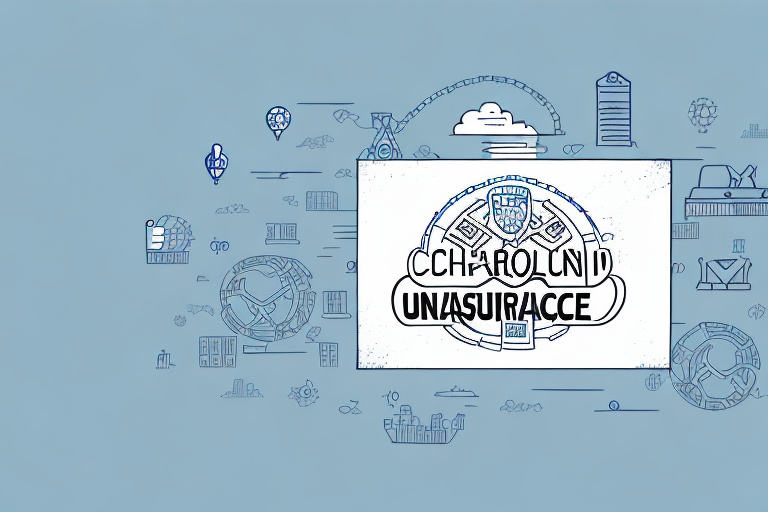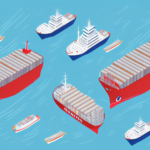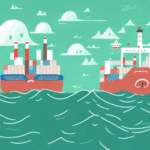Understanding the Limits of Cargo Insurance Coverage in Supply Chains
Supply chain management involves the transportation of goods across various international borders and routes. While this transportation process is essential to any business's success, it is also fraught with risks. Potential hazards include theft, damage, weather-related events, and other unpredictable incidents that may occur while transporting goods. To mitigate these risks, businesses secure Cargo Insurance, providing financial protection in case of losses or damages to goods. However, it's crucial to understand the limits of the coverage provided by these policies to ensure comprehensive protection.
Key Statistics on Cargo Insurance
According to the 2023 Global Cargo Insurance Report, the cargo insurance market has grown by 5% annually, reflecting the increasing reliance on insured logistics in global trade.
What is Cargo Insurance and How Does It Work?
Cargo Insurance is a type of coverage that provides financial protection to businesses transporting goods by air, sea, or land. This insurance applies to the goods being transported, reimbursing for any losses or damages that may occur during transit. When a business takes out a Cargo Insurance policy, they pay a premium to the insurer, who assumes the risk of any losses during transit. The insurer is liable for the insured amount specified in the policy, typically based on the cargo's actual value.
It's important to note that Cargo Insurance does not cover losses or damages caused by improper packaging or handling of the goods. Businesses must ensure that their goods are properly packaged and handled during transit to qualify for coverage. Additionally, some Cargo Insurance policies may have exclusions or limitations, such as not covering losses due to war or political unrest in certain regions. Therefore, businesses should carefully review their policies to understand the coverage and limitations before transporting their goods.
Different Types of Cargo Insurance Coverage Explained
Businesses can choose from various types of Cargo Insurance policies based on their specific needs. Common types include:
- All Risk Coverage - Covers all possible risks during transit except those explicitly excluded.
- Free of Particular Average (FPA) Coverage - Covers partial losses or damages due to accidents, such as heavy weather conditions, but only if the damage exceeds a specified percentage of the insured value.
- General Average Coverage - Covers losses shared proportionally among cargo owners in the event of a general average loss.
Additional coverage options include war risk, strikes, riots, and civil commotions coverage, offering protection against specific risks. Evaluating the unique risks a business faces is essential in selecting the appropriate policy.
The cost of Cargo Insurance varies depending on the policy type and coverage level required. Factors influencing cost include cargo value, transportation mode, and potential risks involved. Regular policy reviews are recommended to ensure the coverage continues to meet the evolving needs of the business.
Common Exclusions and Limitations in Cargo Insurance Policies
While Cargo Insurance provides financial protection during transit, policies come with specific exclusions and limitations. Understanding these is crucial to ensure the policy aligns with business needs.
- Natural Disasters: Events like hurricanes, floods, and earthquakes are typically excluded unless explicitly covered in the policy.
- Acts of War or Terrorism: These are generally excluded from standard Cargo Insurance policies.
- Unsuitable Goods for Transit: Damages resulting from goods not being suitable for transit are usually not covered.
Theft or pilferage is another common exclusion. Some policies may cover theft under certain conditions, while others may exclude it entirely. It's imperative for businesses to review their policies to understand the extent of coverage for theft or pilferage.
Additionally, certain types of goods, such as hazardous materials or perishable items, may have limited or no coverage. Businesses should ensure their selected policy adequately covers the specific types of goods they transport.
Importance of Evaluating Risk Factors Before Choosing a Cargo Insurance Policy
Selecting the right Cargo Insurance policy requires a thorough evaluation of several risk factors. Key considerations include:
- Nature of Goods: Understanding the value and vulnerability of goods being transported.
- Transportation Mode: Different modes (air, sea, land) have varying risk profiles.
- Destination and Route: Political stability and infrastructure quality of destinations and transit routes impact risk levels.
Evaluating these factors ensures that businesses choose policies that provide adequate financial protection against specific risks. Additionally, considering the insurer's reputation and financial stability is vital to ensure reliable claims processing.
The Role of Freight Forwarders and Shippers in Securing Cargo Insurance Coverage
Freight forwarders and shippers play a critical role in securing Cargo Insurance coverage. They coordinate transportation logistics, negotiate rates, and ensure goods are delivered safely and on time. Often, they arrange Cargo Insurance policies on behalf of businesses, covering entire transits or specific portions. Their expertise helps businesses select appropriate insurance types based on operational needs and risk assessments.
What to Consider When Claiming for Losses or Damages Under a Cargo Insurance Policy
In the event of losses or damages during transit, businesses must navigate the claims process effectively to receive appropriate compensation. Key considerations include:
- Policy Terms and Conditions: Understanding what is and isn't covered.
- Required Documentation: Providing accurate and complete documentation to support claims.
- Claim Filing Deadlines: Adhering to time limits for submitting claims to avoid denials.
Different insurance companies may have varying claim submission processes, including specific forms or online portals. Familiarizing oneself with these processes is essential to expedite claims and prevent delays.
Alternative Risk Management Strategies for Supply Chains Without Adequate Cargo Insurance Coverage
For businesses that cannot afford adequate Cargo Insurance or seek additional protection, alternative risk management strategies include:
- Enhanced Security Measures: Implementing surveillance, tracking systems, and increasing security personnel.
- Reliable Carriers: Partnering with reputable carriers known for secure and timely deliveries.
- Due Diligence: Conducting thorough risk assessments for each segment of the supply chain.
Additionally, developing a contingency plan can help businesses respond to unforeseen events such as theft, damage, or losses. This plan should outline steps for mitigation and include a communication strategy to keep all stakeholders informed during disruptions.
Another strategy is collaborating with other businesses to share the risk and cost of Cargo Insurance. Forming a consortium or group insurance policy can result in better coverage at a reduced cost, making insurance more accessible.
Emerging Trends and Innovations in the Cargo Insurance Industry
The cargo insurance industry is evolving to meet the dynamic needs of global trade. Notable trends and innovations include:
- Blockchain Technology: Enhancing transparency and security in the claims process through immutable ledgers.
- Predictive Analytics and Artificial Intelligence: Improving risk assessment and enabling proactive risk management.
- Real-Time Monitoring: Utilizing IoT devices and sensors to track goods during transit, providing real-time data to insurers and businesses.
Moreover, the use of drones for cargo inspection and surveillance is gaining traction. Equipped with high-resolution cameras and sensors, drones can inspect cargo containers efficiently, reducing the time and cost associated with manual inspections.
The industry is also exploring smart contracts to automate the claims process. These self-executing contracts, with terms directly written into code, can streamline claims processing by reducing the need for intermediaries and minimizing processing time and costs.
Expert Insights on Improving Your Understanding of Cargo Insurance Coverage Limits in Supply Chains
Experts emphasize the importance of aligning Cargo Insurance coverage with the value of goods transported. Ensuring that coverage amounts accurately reflect the cargo's worth is fundamental to effective risk management.
Another key insight is selecting policies that correspond to the specific risks a business faces. Experts advise regular reviews of insurance policies to adapt to changing business needs and emerging risks.
In conclusion, securing Cargo Insurance coverage is a critical strategy for managing risks in supply chains. Understanding policy exclusions and limitations, selecting appropriate coverage based on specific risks, and regularly reviewing policies ensure businesses are adequately protected. By comprehensively understanding the limits of Cargo Insurance coverage, businesses can mitigate risks effectively, ensuring the resilience and success of their supply chain operations.






















